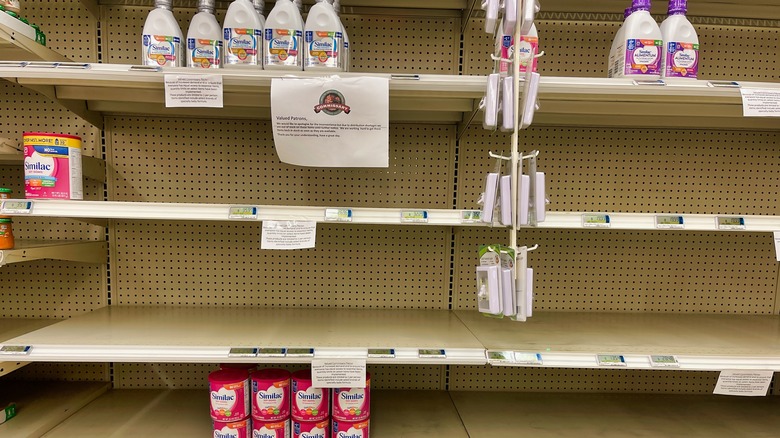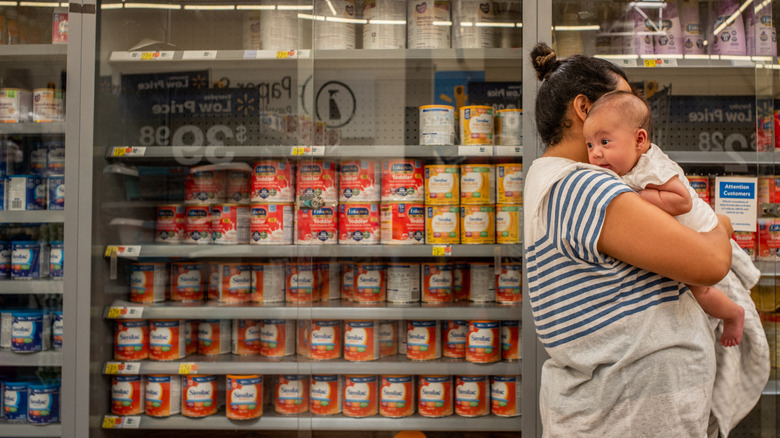After Setbacks, The Baby Formula Shortage May Be Nearing Its End
Months after a baby formula shortage began, the roller coaster ride to fill empty shelves with much-needed formula may almost be over. It all started in February when Abbott Laboratories, the maker of Similac, Alimentum, and EleCare brand baby formula, agreed to a plant shutdown after the U.S. Food and Drug Administration (FDA) found traces of bacteria at one of its facilities, reports The Wall Street Journal. According to Time, hospitalizations and babies' deaths were traced back to the same kind of bacteria that had been detected in the plant.
The Sturgis, Michigan facility was just starting up going again in June when a storm went through the area and caused damage to the building, forcing another shutdown for repairs. Since February, the U.S. government worked to get foreign baby food onto American store shelves to help relieve the shortage, both temporarily and long-term. Prior to the baby formula shortage, CNBC reported the United States relied on four manufacturers: Nestle USA, Perrigo, Abbott, and Mead Johnson Nutrition.
Michigan baby formula plant reopens — again
Abbott announced it reopened its Michigan plant on July 1 with its hypoallergenic EleCare baby formula first to be put into production, according to Reuters. The Associated Press reports the shortage of formula was hardest for families whose babies had health issues such allergies, digestive problems, and metabolic disorders. Those first-produced containers of EleCare are set to ship out in a few weeks, an Abbott spokesman said, as reported by The Wall Street Journal. Next, Abbott stated that it will restart the production of Similac.
However, according to FindingFormula.org, Similac was the type of baby formula most found on store shelves, followed closely behind by Enfamil (which is made by Reckitt Benckiser Group). In addition to reopening its Michigan plant, Abbott tapped into its supplies in Spain and Ireland to bring baby formula to the United States, according to The Wall Street Journal.
Realizing the vulnerability of the American baby formula market following the February and June plant shutdowns as well as current supply chain issues, the FDA stated that it will continue to work with foreign suppliers to strengthen the United States' baby formula market.

